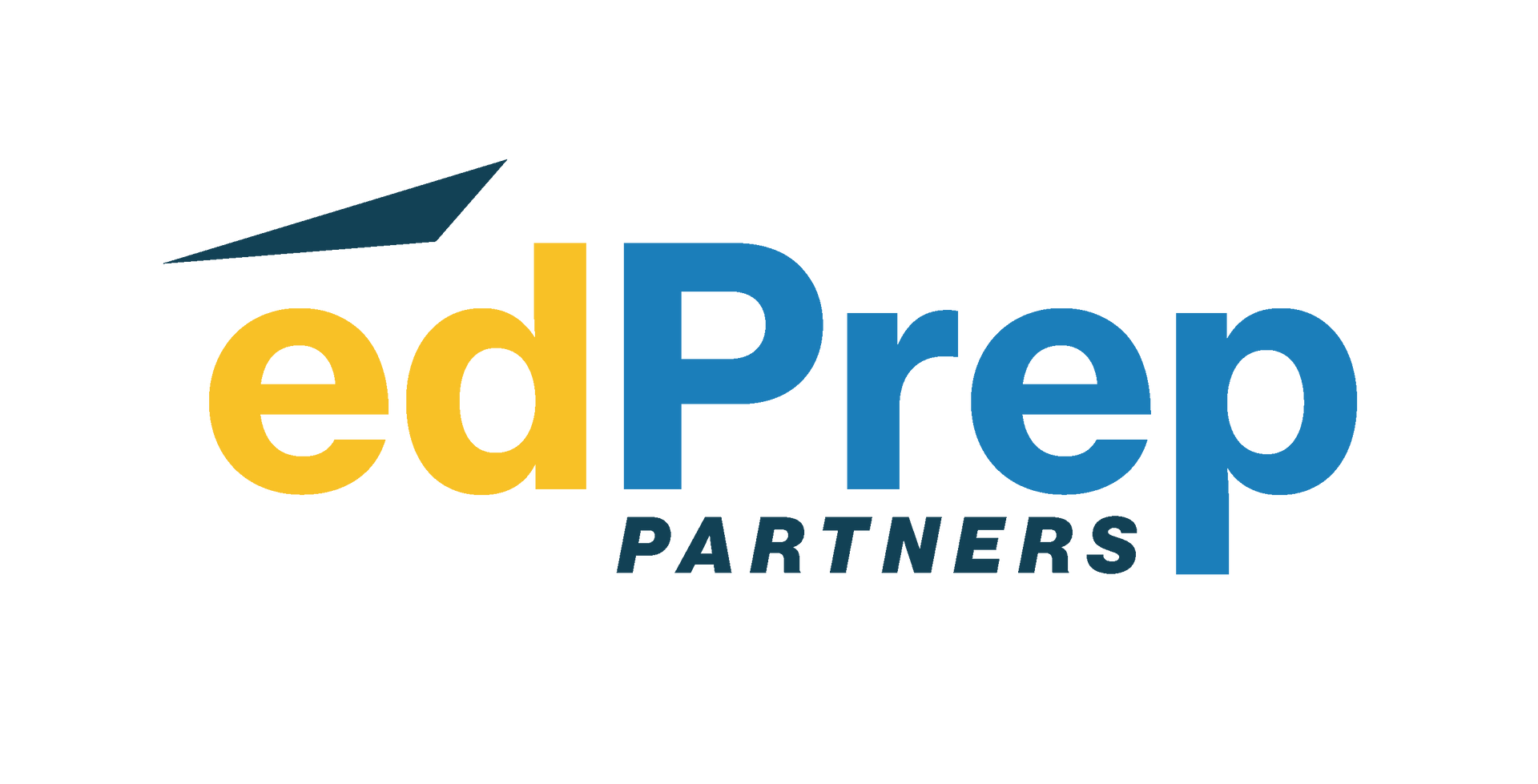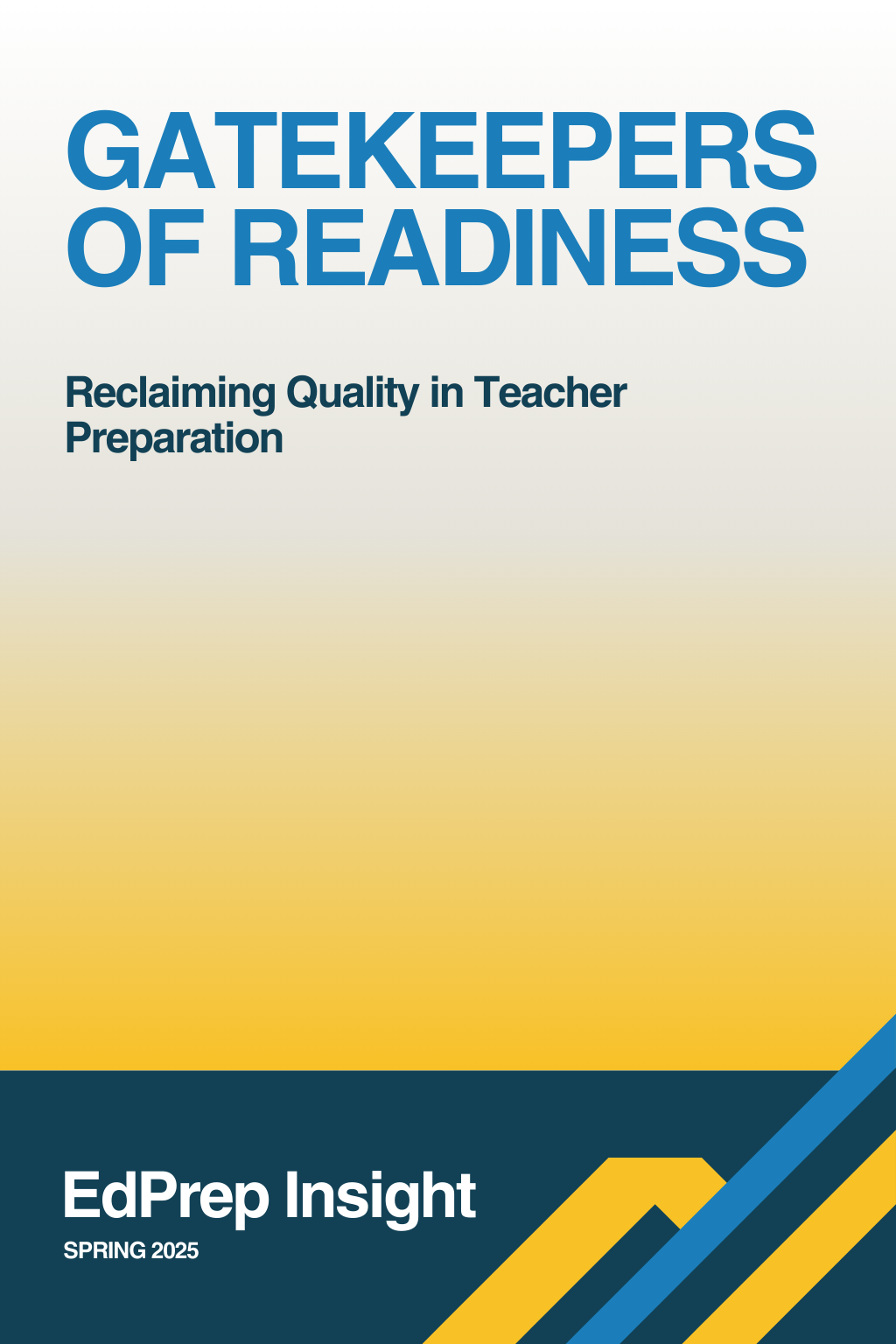Gatekeepers of Readiness: Reclaiming Quality in Teacher Preparation
Gatekeepers of Readiness: Reclaiming Quality in Teacher Preparation
The Challenge: Candidate Program Progress ≠ Proficiency
No gateway, no guarantee. If we truly want readiness, we have to require it.
Every year, thousands of teacher candidates advance through preparation programs without clear, evidence-based confirmation that they’re ready for what’s next. Coursework and clinical experiences are completed. Clinical hours and documentation is logged. Evaluations are submitted. But critical questions remain:
- Can this candidate plan and deliver effective instruction?
- Has the candidate demonstrated proficiency in essential pedagogical methods?
- Is the candidate prepared to lead a classroom on day one?
Too often, the answer isn’t yes or no—it’s maybe, probably, or simply unclear. And when progression is based more on time or task completion than demonstrated readiness, even well-intentioned systems can fall short. The result? Districts are left unsure of what a candidate can do. And ultimately, P–12 students experience the consequences in real time.
The Solution: Performance Gateways
At EdPrep Partners, we believe advancement in teacher preparation should be earned—not assumed. That’s where performance gateways come in.
Performance gateways are structured checkpoints built into a preparation program where candidates must demonstrate clear, observable proficiency in core instructional competencies before moving forward. They aren’t hurdles—they’re commitments to readiness. They reflect what many on the field have long recognized: that advancing through preparation requires defined opportunities to demonstrate performance, not just passive participation.
When done well, performance gateways give everyone a shared bar for what “ready” actually looks like. They align expectations across coursework and clinical experiences, helping programs feel confident that candidates aren’t just progressing—they’re prepared.
What Gateways Look Like in Practice
Strong programs don’t treat performance gateways as one-time checks. They build them into the architecture of preparation—across three critical domains:
1. Coursework Progression
Gateway assignments—whether performance tasks, planning artifacts, or modeled pedagogical practices—aren’t just graded activities. They’re structured demonstrations of instructional skill. Candidates must show proficiency against pre-developed criteria, using shared instructional frameworks, aligned to core methods and content pedagogy before advancing to later coursework or entering clinical placements.
2. Clinical Transition Points
Before taking on any level of teaching responsibility—whether through co-teaching or as a full-time teacher of record—candidates engage in structured opportunities to demonstrate proficiency in core instructional methods and pedagogies. These gateways may include rehearsals, lesson enactments, or other representations of teaching, supported by observation of practice, planning artifacts, and content-pedagogy evidence assessed against shared instructional frameworks. When expectations aren’t yet met, candidates receive targeted coaching—clear, high-quality oral and written feedback—alongside additional practice and a reassessment opportunity. The goal is not punishment, but support and growth.
3. Licensure Readiness and Program Completion
Some performance gateways—whether tied to licensure, graduation, or overall program completion—draw on aggregated evidence of candidate performance. This may include portfolios, demonstration lessons, observation data, feedback cycles, and ratings on core instructional methods, pedagogical practices, and professional dispositions. These gateways offer a more comprehensive view of readiness—not just a checklist of completed tasks.
When candidates don’t yet meet expectations, strong programs respond with support—not exclusion. That support includes targeted coaching, individualized growth plans, and multiple structured opportunities to demonstrate progress—ensuring that any high-stakes decision to advance or withhold a candidate is grounded in evidence.
What Strong Programs Do Differently
Programs that implement effective performance gateways don’t leave readiness to chance. They build it into the structure of preparation—and they’re willing to make hard decisions in service of quality.
Here’s what they prioritize:
- Shared Criteria and Expectations
Gateways are aligned to a shared instructional framework, with consistent criteria & look-fors, proficiency benchmarks, and frameworks used across faculty, supervisors, mentors, and candidates. - Calibration Across Roles
Faculty and field supervisors alike are trained and calibrated on what quality looks like—and how to assess it reliably. - Transparent Candidate Support Plans
Candidates know what’s expected and what happens if they don’t meet the bar. Growth plans are not reactive—they’re proactive. - Data-Driven Progression Decisions
Advancement is grounded in multiple data sources: performance assessments, observation feedback, candidate coursework, and candidate and faculty/staff reflections—not gut instinct or seat time. - Willingness to Hold the Line
Strong programs are willing to hold a candidate in a ‘phase of support’ when readiness isn’t yet demonstrated—because advancing without proficiency serves no one. They pair high expectations with high support, ensuring every candidate has the opportunity to meet the bar before moving forward. - Candidate Readiness as a Shared Responsibility
Performance decisions aren’t the job of one teacher educator. They require aligned systems, clear structures, and shared ownership across faculty, supervisors, and district partners. When the entire preparation ecosystem supports a common bar for readiness, gateways become reliable—not random.
This work requires intention, structure, and investment. But the payoff—better-prepared candidates who are ready on day one—is worth it.
Why This Matters
When performance gateways are clearly defined and well-executed, everyone benefits:
For Candidates: They receive timely, actionable feedback and know exactly what’s expected at each stage. ‘Readiness to Teach’ isn’t a guessing game—it’s something they can see and achieve.
For Programs: They gain confidence that their completers are truly ready—and have the data to prove it.. Gateways strengthen program credibility, build trust with P-12 partners, and elevate outcomes.
For Districts: They hire new teachers who are instructionally ready—not just licensed. These candidates have already demonstrated they can plan, teach, and adapt in real P-12 classrooms.
For P–12 Students: They’re taught by educators who are truly prepared to lead learning from day one. And as research shows, the quality of the teacher makes all the difference.
At EdPrep Partners, performance gateways are a core lever of our EdPrep Performance Framework. We support educator preparation programs to:
- Design developmental trajectories that build toward clear, proficiency-based benchmarks
- Establish structured performance gateways across coursework and clinical experiences
- Develop and calibrate observation frameworks, criteria, and look-fors aligned to core instructional practices
- Implement targeted support plans for candidates who need additional time or coaching to meet expectations
- Make progression decisions that are consistent, equitable, and grounded in multiple sources of evidence
We help programs shift from informal checkpoints to intentional, performance-based systems of candidate development—ensuring every candidate advances based on one overarching thing: demonstrated readiness to teach.
Let’s Stop Guessing at Readiness
Teacher preparation isn’t about getting candidates through the program. It’s about getting them ready—deliberately, thoroughly, and with high expectations—for the P-12 classrooms they will lead.
It means candidates demonstrating skills.
It means meeting a clear, shared bar.
It means performance—and readiness.
Let’s stop implying readiness.
Let’s measure it.
Let’s make teacher preparation better—together.
Calvin J. Stocker
Founder & CEO, EdPrep Partners
Stay Connected
If you're interested in learning more, exploring collaboration or technical assistance, or just want to catch up, we’d love to connect:
About EdPrep Partners
Elevating Teacher Preparation. Accelerating Change.
EdPrep Partners is a national technical assistance center and non-profit. EdPrep Partners delivers a coordinated, high-impact, hands-on technical assistance model that connects diagnostics with the support to make the changes. Our approach moves beyond surface-level recommendations, embedding research-backed, scalable, and sustainable practices that most dramatically improve the quality of educator preparation—while equipping educator preparation programs, districts, state agencies, and funders with the tools and insights needed to drive systemic, lasting change.



